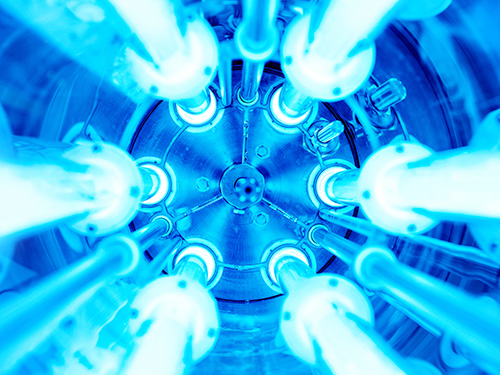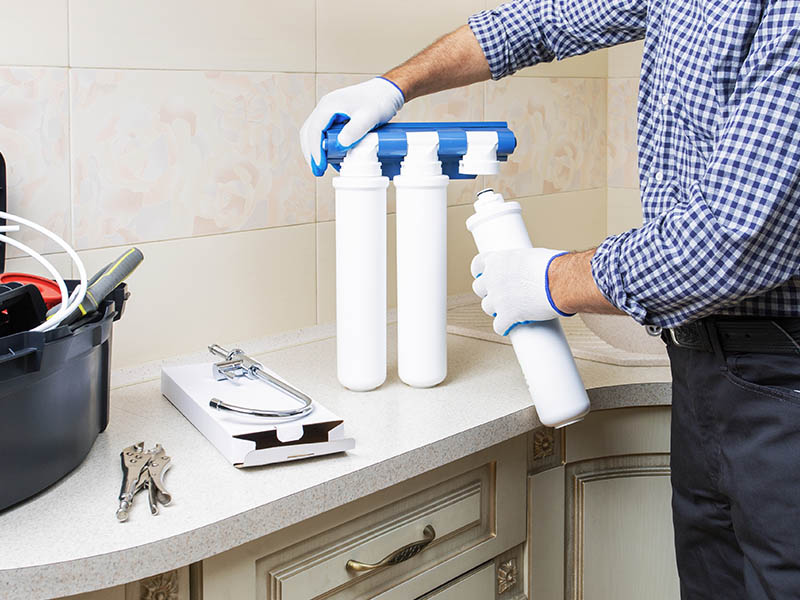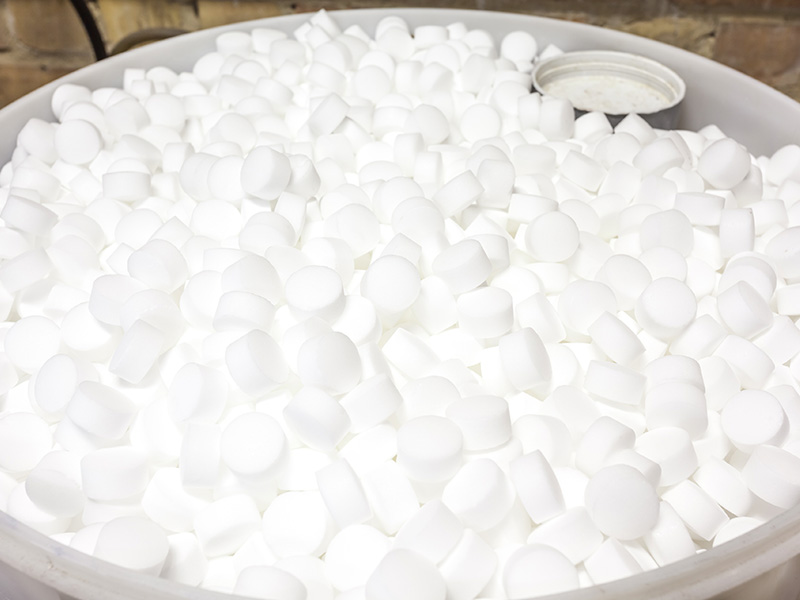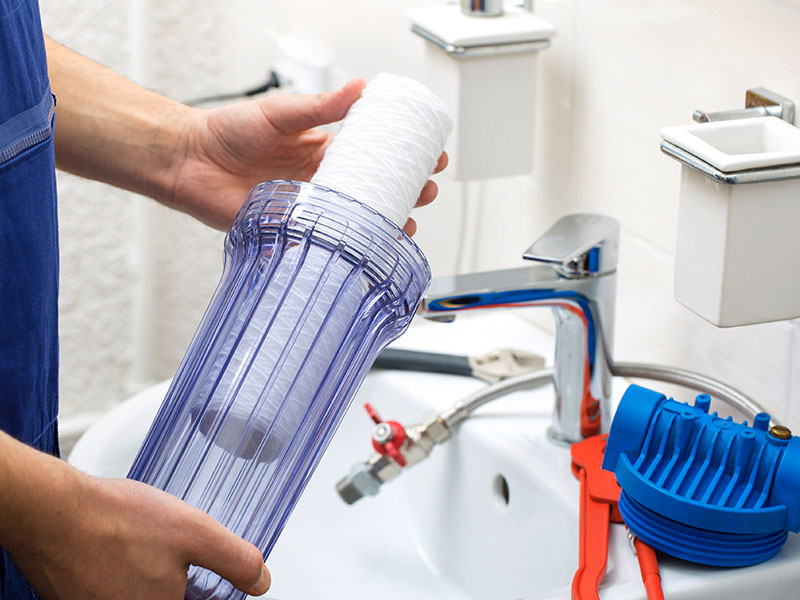As concerns over waterborne pathogens grow, effective treatment solutions are more critical than ever. Contaminated water can spread illnesses quickly, affecting communities, businesses, and industries. In this context, advanced disinfection methods are no longer optional—they are necessary for ensuring safety and compliance with health standards.
One method that has proven highly effective is ultraviolet (UV) water treatment, which uses UV light to inactivate harmful microorganisms without introducing chemicals into your water supply. Trident Water Treatment provides advanced water purification systems, including UV water treatment, tailored to your needs. This article explores the role of UV water treatment in eliminating bacteria, how it works, its benefits, and why partnering with experts like Trident Water Treatment ensures your access to safe water.
Understanding UV Water Treatment Technology
Ultraviolet (UV) water treatment is a disinfection method that uses concentrated UV light to inactivate harmful microorganisms present in water. When exposed to UV radiation, bacteria, viruses, and protozoa absorb the energy, which damages their DNA or RNA and prevents them from reproducing.
Unlike chemical disinfectants, UV treatment doesn’t alter your water’s taste, odor, or pH and leaves behind no chemical residues or byproducts. This makes it a safe and environmentally friendly option for achieving clean water without the drawbacks often associated with chemical methods such as chlorination. Let’s dive deeper into the benefits of UV water treatment.
Benefits of UV Water Treatment
There is a wide range of advantages for homes, businesses, and industries that choose to use UV technology for water purification. Below are the key benefits of this technology and why it has become a preferred choice for modern water treatment systems.
Chemical-Free Disinfection
The ability to disinfect without the use of chemicals remains one of the most appealing benefits of UV water treatment. Unlike chlorine and other chemical disinfectants, UV does not introduce additional substances into the water supply.
This eliminates concerns about chemical handling, storage, and exposure. As well as the potential health risks associated with consuming water treated with harsh chemicals. For families and businesses, this translates into safer drinking water with no added chemical taste, odor, or byproducts.
Environmentally Friendly Solution
UV water treatment supports sustainability by avoiding chemical waste and minimizing long-term ecological impact. Traditional disinfection methods can lead to the formation of harmful byproducts, such as trihalomethanes (THMs) and haloacetic acids (HAAs), which can persist in the environment and affect ecosystems.
In contrast, UV relies solely on light energy, leaving no residual contaminants in treated water. This makes it an eco-conscious choice for communities and industries seeking to reduce their environmental footprint while still ensuring safe water.
Reliable and Highly Effective Performance
UV water treatment is proven to inactivate up to 99.99% of harmful microorganisms, including bacteria, viruses, and protozoa such as Giardia and Cryptosporidium—organisms that are often resistant to chlorine.
Once installed, a properly maintained UV system delivers consistent performance without the variability sometimes seen in chemical dosing systems. This reliability makes UV ideal for applications where water safety cannot be compromised.
Low Maintenance and Easy Operation
Another advantage of UV water treatment is its simplicity. Maintenance is generally limited to periodic lamp replacement (typically once a year) and occasional cleaning of the quartz sleeve that houses the lamp.
The systems are automated and operate continuously, requiring little user intervention once installed. This ease of use makes UV technology an attractive long-term solution for both homeowners and facility operators who want effective disinfection without the burden of complex upkeep.
Cost-Effective Long-Term Solution
While the initial investment in a UV system may be higher than some chemical alternatives, its long-term low cost is undeniable. UV systems consume relatively little energy—comparable to a standard household lightbulb, which keeps their ongoing costs low.
With minimal maintenance requirements and no need to purchase or store chemicals, UV technology often proves to be the most economical choice. This makes it a practical investment for both small households and large-scale industrial operations.
Scalable for Multiple Applications
UV water treatment systems are highly versatile and can be scaled to meet the needs of different users. Compact residential units are available for households, while larger, industrial-grade systems can treat thousands of gallons per minute.
This scalability makes UV suitable for a wide range of applications, including municipal water supplies, wastewater treatment plants, food processing, and high-purity water systems used in pharmaceutical manufacturing and electronics.
Factors Influencing UV System Performance
The success of a UV water treatment system depends on how well it is matched to the quality and conditions of the water being treated. One of the most critical factors is water clarity. If the water contains high levels of turbidity, color, or suspended solids, these can block or scatter the UV light, reducing its ability to reach and inactivate microorganisms.
Pretreatment methods such as water filtration are often used in these cases to ensure that the UV system operates effectively. Flow rate also plays a significant role—if water moves too quickly through the chamber, it may not receive enough UV exposure to achieve proper disinfection.
Beyond water characteristics, the performance of a UV system is shaped by its design and maintenance. The intensity of the UV lamp must be sufficient for its application. Over time, lamps gradually lose effectiveness, which is why periodic replacement is important.
System configuration, such as the placement of lamps and reflectors, also affects how evenly the light is distributed across the water flow. To maintain consistent performance, regular monitoring and cleaning of system components are recommended. By considering these factors, you can ensure that your UV system operates at peak efficiency, providing reliable and safe water treatment.
Future Innovations in UV Water Treatment
UV water treatment technology continues to advance rapidly, with research focusing on greater efficiency and system intelligence. One of the most promising developments is the use of UV-C LEDs, which are more compact, energy-efficient, and durable compared to traditional mercury-based lamps.
These LEDs not only extend the operational lifespan of systems but also open the door to portable and point-of-use UV devices that can be deployed in remote locations or for emergency response. Alongside this, next-generation low-pressure high-output (LPHO) lamps are being refined to deliver stronger disinfection capabilities while consuming less energy, helping reduce long-term operating costs.
Another area of innovation lies in system integration and automation. Advanced monitoring technologies are being designed to track water quality, lamp performance, and overall disinfection efficiency in real time. This type of “smart” UV system can adjust power usage dynamically, optimizing energy consumption while maintaining effective pathogen inactivation.
In addition, hybrid systems that pair UV with complementary processes—such as filtration, ozonation, or advanced oxidation—are being developed to provide multi-barrier protection against both microbial and chemical contaminants. These innovations reflect a shift toward water treatment solutions that are not only more effective but also more adaptable to the evolving demands of environmental sustainability and public health.
Why Expertise Matters in UV Water Treatment
UV water treatment is a powerful way to ensure clean, safe water, but its success depends on more than the technology itself. Factors such as water clarity, flow rate, and lamp intensity must be carefully balanced to deliver consistent results. Without professional guidance, a system can underperform, leaving water only partially disinfected and failing to provide the protection customers expect.
For homeowners, businesses, and facilities alike, this can mean added risks and unnecessary expenses when water quality falls short of expectations. Expertise makes the difference, transforming a standard installation into a long-term solution that truly safeguards water quality.
Decades of hands-on experience allow Trident Water Treatment to install and maintain UV systems that perform at their highest potential. Every project is approached with precision, ensuring that the system is tailored to the specific water conditions of your home or business. Ongoing support is built into the process, from scheduled lamp replacements to system monitoring.
You benefit from more than just reliable equipment—you gain a trusted partner committed to protecting water quality with dependable solutions and responsive service. This means fewer worries and greater efficiency. With expert care guiding every step, UV systems from Trident Water Treatment deliver the highest level of bacterial protection, ensuring safe, clean water.
Partner with Trident Water Treatment for Lasting Water Safety
Proper installation and regular maintenance of your UV water treatment system are critical to ensuring reliable performance. Without expert care, even the most advanced system can underperform, leaving water quality at risk. You deserve a solution that not only works on day one but continues to protect your water for years to come.
Trident Water Treatment makes that possible. With decades of experience and a customer-first approach, we provide full-service support to keep your UV treatment system operating at peak performance. If you’re ready to take the next step toward cleaner, safer water, contact us today—we’ll help you safeguard your water supply and achieve lasting peace of mind.




